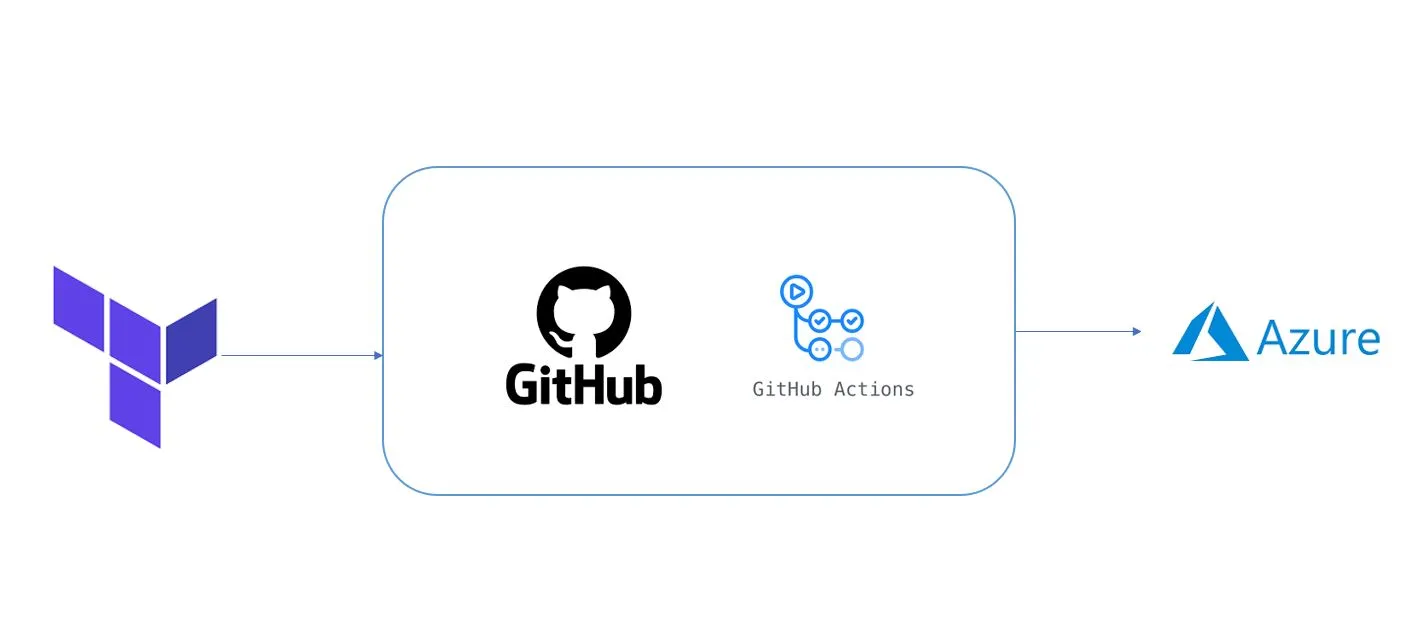Overview
This project is a fully automated, cloud-native portfolio and blog platform built using Hugo, Terraform modules, GitHub Actions, and Microsoft Azure. It serves as a live demonstration of my expertise in Infrastructure as Code (IaC), CI/CD pipelines, serverless backend development, and secure cloud deployments.
It hosts my portfolio, blog posts, resume, and contact form, and it’s entirely provisioned and managed via Terraform and GitHub Actions.
🔧 Tools & Technologies
- Hugo: Static site generator for creating the blog and portfolio.
- Terraform (modular): Used to provision Azure infrastructure using reusable modules.
- Azure Static Web Apps: Hosts the frontend Hugo site with global scalability.
- Azure Function App (Python): Backend logic for contact form and future API endpoints.
- Azure Blob Storage: Static website hosting for downloadable resume.
- Azure Key Vault: Manages API keys and other sensitive secrets.
- Application Insights: Provides monitoring, metrics, and diagnostics.
- GitHub Actions: Automates CI/CD pipeline for both frontend and backend deployments.
🧱 Infrastructure Diagram

💻 Project Structure
My-Portfolio/
├── .github/
│ └── workflows/
├── api/
├── archetypes/
├── assets/
│ └── css/
├── content/
├── infra/
├── layouts/
├── static/
│ └── images/
├── themes/
├── .gitignore
├── .gitmodules
├── .hugo_build.lock
├── README.MD
└── hugo.toml
🚀 Deployment Guide
1. Clone Repository
git clone https://github.com/kingdave4/My-Portfolio.git
cd My-Portfolio
2. Configure Secrets
Add your variables to a .tfvars file or securely pass them via Terraform Cloud or GitHub Secrets. Required values:
subscription_id = "<YOUR_AZURE_SUBSCRIPTION_ID>"
function_name = "<AZURE_FUNCTION_NAME>"
storage_name = "<STORAGE_ACCOUNT_NAME>"
mailgun_api_key = "_API_KEY>"
MAILGUN_DOMAIN = "MAILGUN_DOMAIN"
MAILGUN_API_KEY = "MAILGUN_API_KEY"
FROM_EMAIL = "MAILGUN_FROM_EMAIL"
TO_EMAIL = "MAILGUN_TO_EMAIL"
3. Provision Infrastructure
cd terraform
terraform init
terraform plan -var-file="secrets.tfvars"
terraform apply -var-file="secrets.tfvars" -auto-approve
4. Run Hugo Locally
cd hugo-site
hugo server -D
5. GitHub Actions Deployment
Pushing changes to the main branch triggers the GitHub Actions workflow to:
- Build the Hugo static site
- Deploy the frontend to Azure Static Web Apps
- Deploy the backend Python Azure Function
Ensure required GitHub secrets (e.g., Azure credentials, SendGrid key) are added to the repo settings.
🔁 How It Works
Local Development: Designed and tested the site locally using Hugo.
Version Control: Pushed changes to GitHub with version tracking.
CI/CD Pipeline: Unified GitHub Actions workflow handles:
- Hugo site build
- Static Web App deployment
- Azure Function deployment
Infrastructure Provisioning:
- Static Web App (via Terraform module)
- Azure Function App (Python) + Service Plan
- Blob Storage with
$webcontainer for resume - Azure Key Vault for managing secrets
- Application Insights for telemetry
Resume Hosting: PDF resume served from Blob Storage via static web endpoint.
📬 Contact Form Logic
- Frontend form on the site triggers an HTTP request
- Azure Function (Python) receives and processes form data
- Sends email using SendGrid API via secret stored in Azure Key Vault
- Logs success/failure using Application Insights
📁 Repository
GitHub - kingdave4/My-Portfolio
📬 Contact
For questions, feedback, or opportunities, feel free to connect on LinkedIn or drop me a message through the contact form.